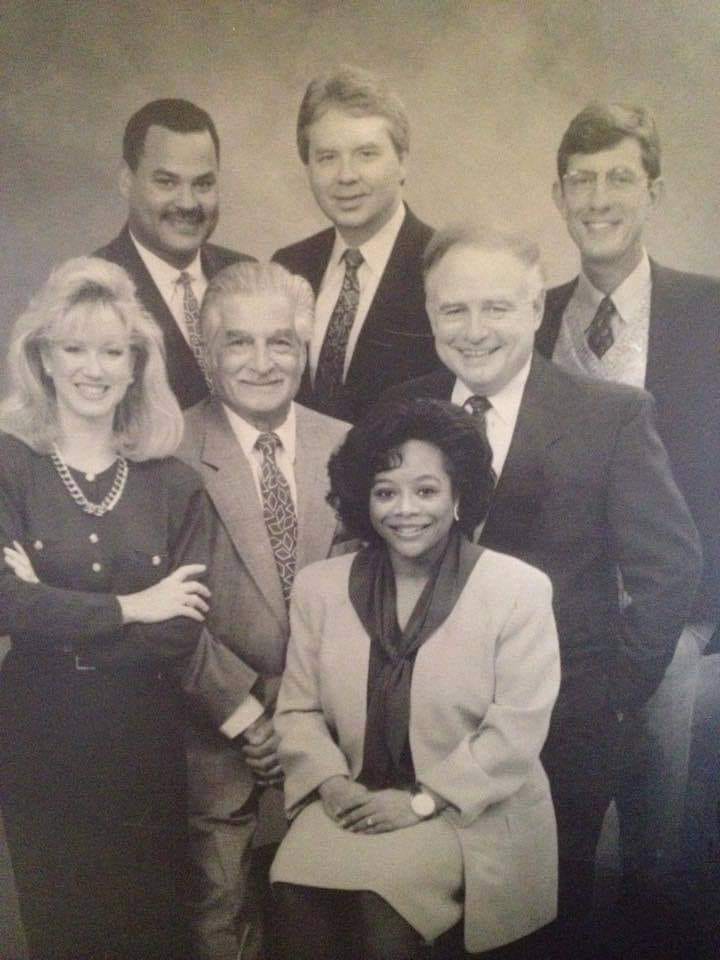The Story Teller
When asked about Jackson's future, Bert Case said that it's never coming back. The main reason he gave for this was that cities ran on property taxes, and the most valuable properties in Jackson were owned by the State of Mississippi, which paid no tax.
I thought the world of Bert and agreed with him about the property tax issue, although I didn't agree with him that there was no hope. The state of Mississippi always took the position that Jackson should be grateful they blessed us with their presence and the number of jobs those state-owned properties created. I always thought we might could get the state to pay some portion of the applicable property taxes, but since most of them ain't from here, I don't know what the possibility of that might be.
For a good while, South Jackson paid the bills for the rest of Jackson. As much talk as there was about North East Jackson paying their fair share, there's no way Eastover could match the population density of South Jackson. Twenty-five thousand working-class, hard-headed Mississippi families, blowin' and goin' was an unstoppable force.
There were jobs, too.
They called my dad "The King of Boards" because he served on so many. One year, for his birthday, Sister Josephine and the other nuns at St. Dominics Hospital gave him a two-by-four with "we thought you could use another board to sit on" painted on it.
Daddy kept a running tally of the number of jobs the companies he served on created in Jackson and the rest of Mississippi. Mississippi Power and Light was the king. They built Grand Gulf with the idea of selling electricity to New Orleans, and when the regulations preventing utility companies from crossing state lines came down in the eighties, all the major electricity markets along the Mississippi River merged and formed a company they called Entergy. Daddy kept close tabs on what that meant for the jobs in Mississippi.
One day, Daddy came home from a Washington trip to find out that a Trustmark teller was killed in a failed bank robbery. Dropping his bag off at home, he drove over to Brum Day's house. They picked up Bob Hearin, and the three of them drove to the woman's house to meet with her family. I sat with Daddy while he ate a cold supper. He told me about this woman's history at Trustmark, her family, and her husband.
When Daddy died, nobody asked me to be on any of these boards because I was a drunken lunatic that could never decide if he wanted to be here or not, but I continued his practice of keeping tabs on how many people these companies employed, and where, and a rough idea of how much they made. Mississippi isn't a collection of companies; it's a collection of people. Of all the things he tried to teach me that didn't get through—that did.
The flood maps banks and insurance companies used for central Mississippi were wrong. When the Easter flood hit in 1979, hardly anybody had flood insurance. South Jackson was particularly hard hit. For working people who had to start over from scratch, building a new house in Pearl or Florence was less expensive than in Jackson.
This bleeding migration away from South Jackson started slowly, but it had become a flood by the turn of the century. Once the workhorse of Jackson, South Jackson became practically a ghetto. Much of the crime you hear about now comes from South Jackson.
I'm still not ready to concede that Bert was right, and there's no way back for Jackson. There's always a way back. Look at the recovery New York made in the seventies. Most of my thoughts now are tempered by memory--mostly memories of people who aren't here anymore. Although it hurts sometimes, that's a valuable perspective.
I can't say that Jackson was ever the most virtuous of places. There were times when we tipped the scale toward evil. William Faulkner would say we earned this declivity because our sins cursed Mississippi. I can't promise you that Faulkner was wrong.
What I can tell you is that, once upon a time, three of the most powerful men in Mississippi drove to a man's house to comfort his children because their mother, a bank teller, had been senselessly killed. Whatever evil is in the DNA of Mississippi, that sort of mindfulness about the hearts of others is in there, too.
I miss my Daddy. I miss Brum Day, Bert Case, and Bob Hearin. I didn't turn out like any of them thought, but I listened to everything they ever said to me, and I keep it deep inside me. I'm the storyteller, the speaker for the dead, and this is their story.



Oh boy did that pic of Woodie Assaf bring back memories of the old WLBT. His doing the weather and the Hart Shaffner Marx commercials. Redy Kilowatt and Teen Tempos!